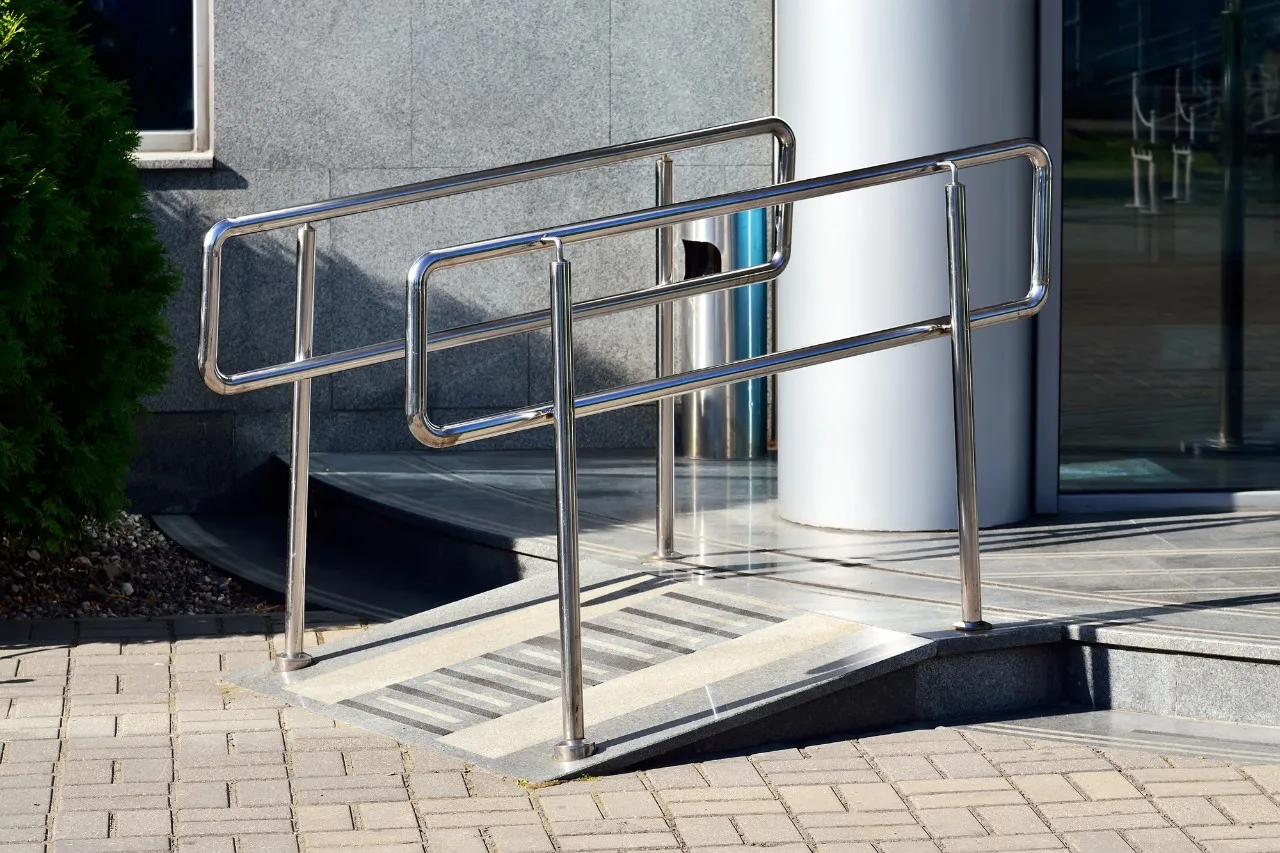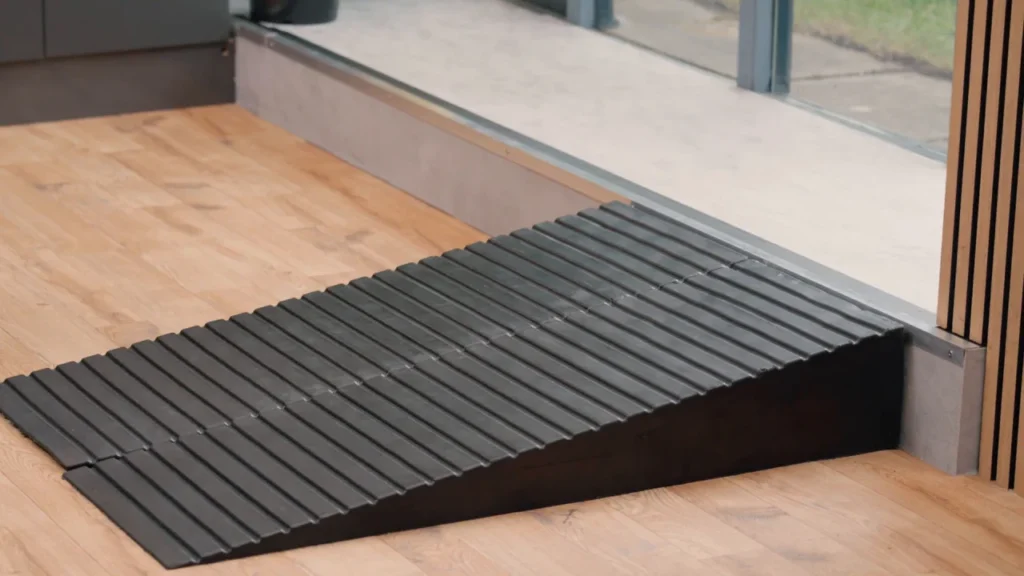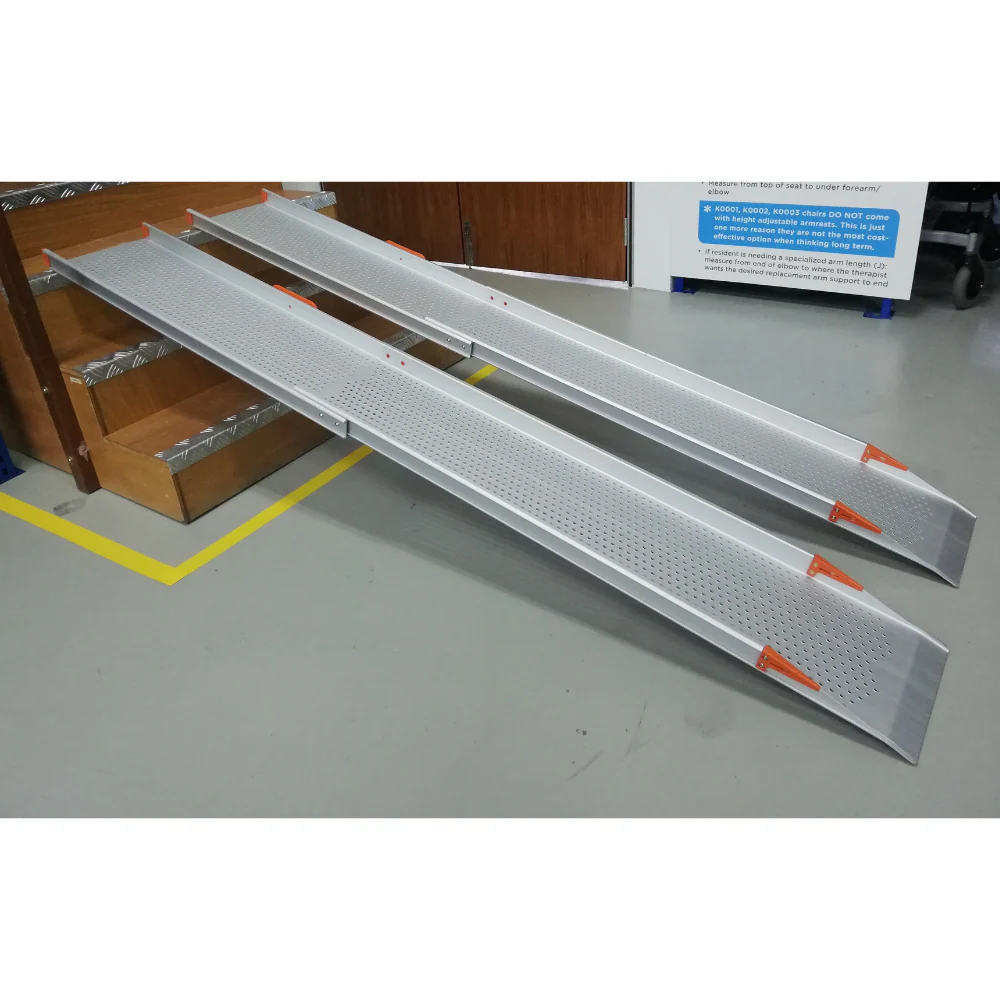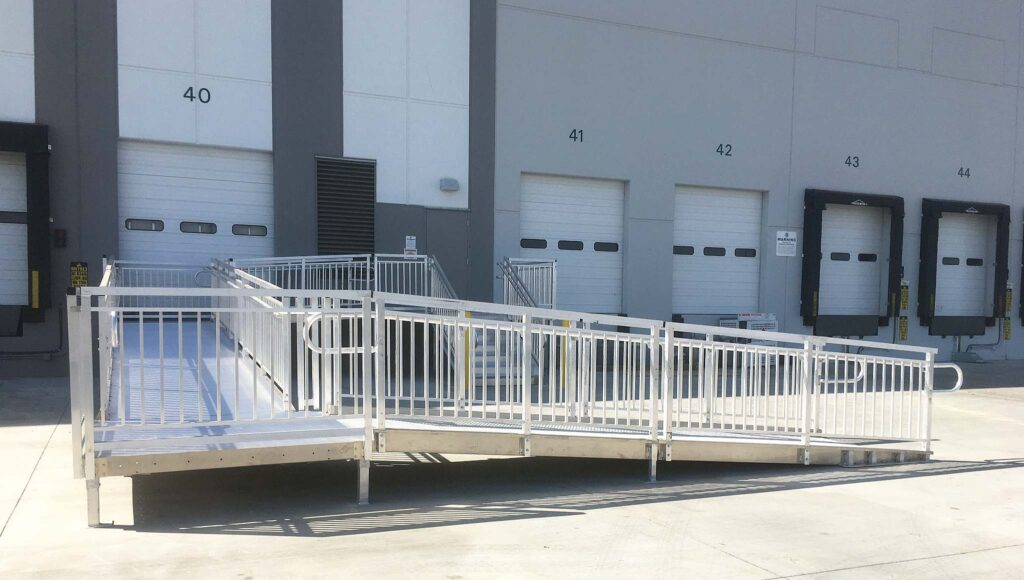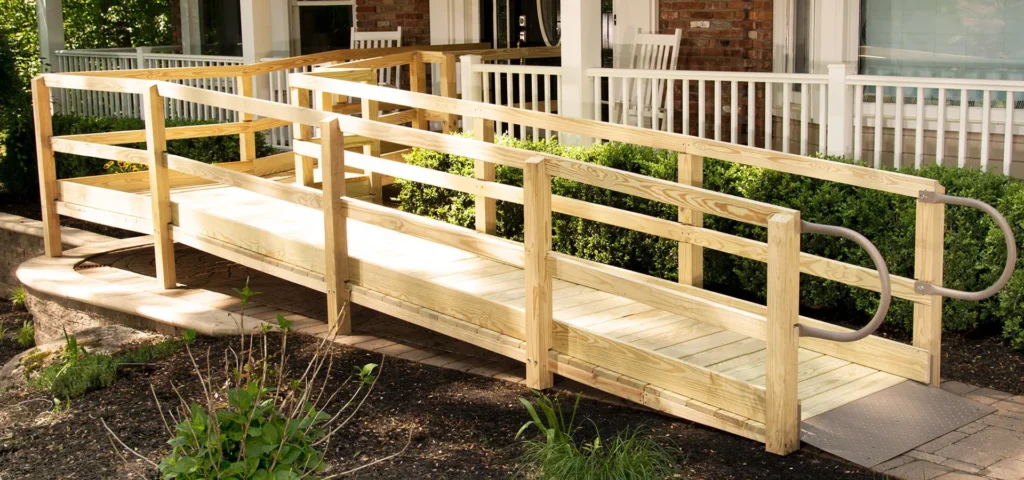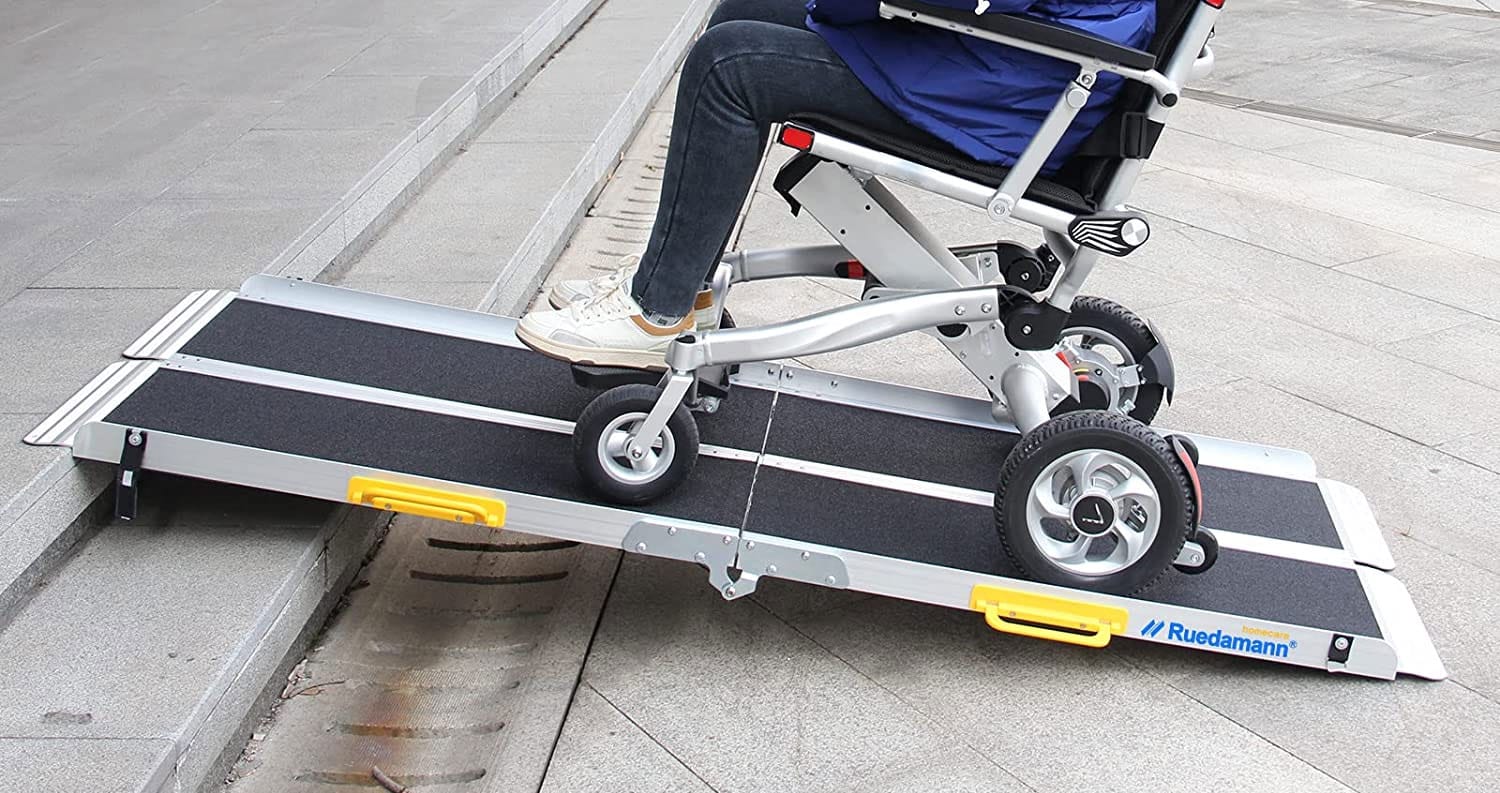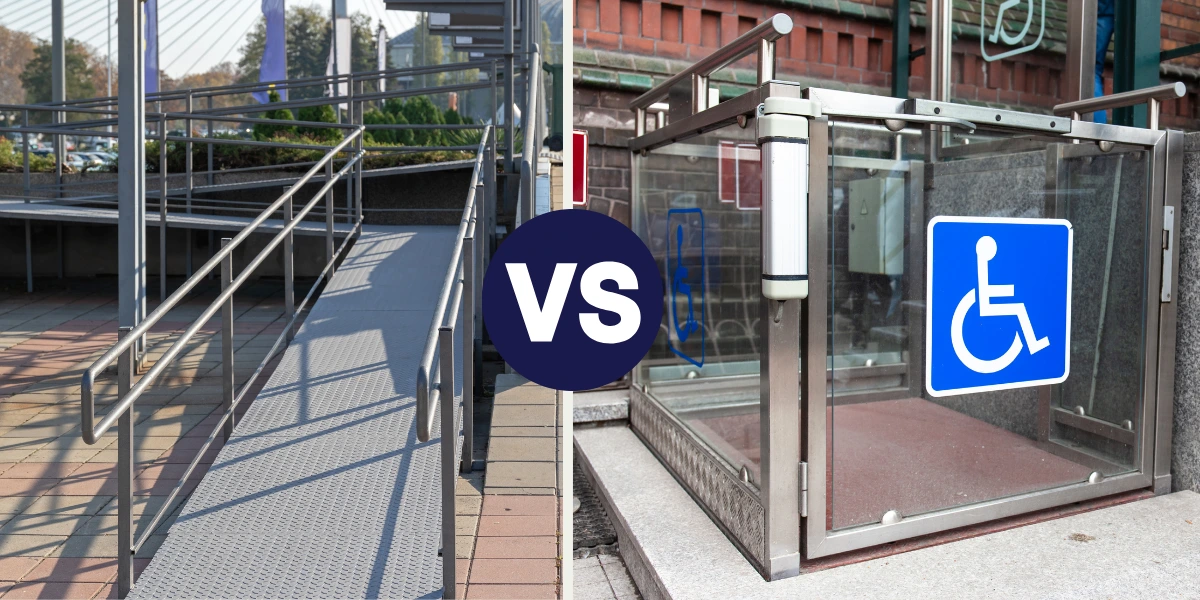Ramp for Wheelchair: Price Guide for Home Installations
Installing a ramp for wheelchair at home is a bit like rolling out a welcome mat for accessibility — a real game-changer. It’s also a smart home upgrade that boosts your property’s function. In this guide, we’ll break down budget-friendly ramp options in Melbourne: from cheap threshold wedges and foldable carry-along ramps to DIY kits and custom deck-style ramps.
Consider it your all-access pass to pricing, styles, and tips for each option. In fact, if you’ve ever googled “ramp for wheelchair”, you know the prices vary wildly. Don’t worry—this guide cuts through the noise.
Staying Compliant: Australian Ramp Regulations
Before we talk cost, remember: Aussie safety rules are non-negotiable. In fact, any ramp for wheelchair must meet AS 1428.1 standards. For example, a compliant ramp needs to be at least 1,000 mm wide between handrails, and the slope is capped at 1:14 (up to 1:10 if the run is short). And yes — if you’re building a permanent ramp in Melbourne, you’ll likely need a council permit. Think of it as dotting the i’s so you don’t get a fine later.
Now for the fun part: there’s no one-size-fits-all. Ramp types include threshold ramps, portable ramps, modular kits, and custom permanent ramps. We’ll break each down below (with images) by height and cost so you can pick what suits your home.
Threshold Ramps
These mini-ramps (usually rubber or light aluminium) slide under your doorstep. They handle only very small rises (typically up to 75 mm). The great news? They’re incredibly cheap. Expect to pay about $50–$300 for a rubber wedge (for instance, a 20–30 mm rubber ramp is only ~$100). Perfect for evening out one little step into your foyer — but don’t buy one for a full flight of stairs.
Portable Ramps
Need a ramp you can stow and carry? Portable (folding or telescoping) ramps are usually made of aluminium. Think of them as suitcase-ramps: they pop open when you need them and collapse for storage. They’re surprisingly sturdy yet light enough to lift.
Prices run roughly $150–$1,000 depending on length. For example, a 2 m heavy-duty telescoping ramp goes for about $300, while a longer 3 m model might be around $1,100. These are great for one- or two-step entries or travel, and if you move house you can just grab and roll.
Modular (Prefab) Ramps
Think of modular kits as grown-up LEGO for ramps. They come in aluminium sections (usually ~1.2–1.5 m long) with screw-on handrails. They look sleek, install faster than building from scratch, and don’t rust. In Melbourne, expect a base cost of about $850–$950 per metre (note: this is just the ramp boards and frame).
Each handrail adds roughly $350 per metre per side. For perspective, a 3 m modular ramp with rails ends up around $2,600. That’s pricier than a rubber wedge but often cheaper than a fully custom build, plus you DIY-install it (or get the supplier to help).
Permanent (Timber/Composite) Ramps
This is the full-on solution: a custom-built ramp framed in timber or composite (or even poured concrete) that blends into your deck or porch. It looks seamless and can handle any height or switchbacks, but it’s a major project. In Melbourne, quotes are typically about $1,600–$1,800 per metre (supply + install).
That means a 3 m timber deck ramp can run around $5,000+. Because it’s essentially building an extension, you’ll hire professionals. For example, Melbourne’s own Vitalease offers design/build services for ramps, ensuring it looks great and ticks all the compliance boxes.
Ramp Materials: Aluminium, Wood & Rubber
Each material has its perks (and quirks). Aluminium ramps cost more up-front but need almost no maintenance. They’re lightweight, corrosion-proof, and often come with built-in non-slip treads. Wood or composite ramps (the kind attached to decks) look more finished and can be cheaper initially, but they require concrete footings and yearly painting or staining to stay safe.
They’re also prone to rot or termites if neglected. And rubber ramps are basically old tyre leftovers — very cheap per unit height, eco-friendly, but useful only for tiny steps. In short: aluminium = more €$ now, but almost no €$ later; wood = less €$ now, but annual upkeep (and watch out for slippery when wet).
Quick Comparison: Ramp Types & Costs
| Ramp Type | Typical Material(s) | Use Case / Height | Price Range (AUD, 2024–25) |
|---|---|---|---|
| Threshold Ramp | Rubber or lightweight aluminium | Small step/door threshold (≤75 mm rise) | ~$50–$300 (rubber wedges) |
| Portable Ramp | Foldable aluminium/plastic | Occasional use (1–2 steps) | ~$150–$1,000 (e.g. 2 m telescoping ≈$300) |
| Modular Ramp | Aluminium kit sections | Semi-permanent entry ramp | ~$850–$950/m (basic kit) + ~$350/m per rail |
| Permanent Ramp | Timber/composite (wood, concrete) | Custom deck or porch ramp (tall rises) | ~$1,600–$1,800/m (supply+install) (landings +$1,200/m²) |
Prices are indicative 2024–25 AUD. Longer or more complex ramps cost more. Always get local quotes.
Cost Factors to Consider
Key things that affect your final bill include:
- Materials: Lightweight aluminium or rubber ramps are generally cheaper (and easier to handle) than heavy timber or concrete.
- Length/Height: The taller the step, the longer (and pricier) the ramp. Very long runs might require landings or switchbacks.
- Handrails & Extras: Rails increase safety (often legally required). Each railing side adds roughly $350/m on top of the ramp.
- Installation: DIY can save money, but pros ensure compliance and permits. Labor is a big chunk of the cost if you go pro.
- Permits & Funding: Council permits apply for fixed ramps. NDIS may subsidize ramps for eligible Australians (often up to ~$20,000).
A long built-in wood ramp costs more per metre than a simple aluminium kit. Portable ramps keep you in the hundreds, not thousands. Decide early: if you need flexibility (e.g. renting or travel), go portable. If you want a seamless, no-DIY look, invest in a permanent install.
Budget Tips & Smart Buying
- Shop around: Compare online and in stores. Check that quotes include all parts (rails, hardware, delivery).
- Measure carefully: Calculate your total rise and run. A 45 cm step might need ~6–7 m of ramp (at 1:14).
- Standard sizes: Choose common ramp lengths. Off-the-shelf 2 m or 3 m ramps are cheaper than custom.
- Check funding: NDIS or other schemes might subsidize your ramp.
- Try before committing: Rent a ramp short-term to test it.
- Get local quotes: Even with DIY kits, check with Melbourne installers for advice and compliance.
Conclusion & Next Steps
You’ve now seen everything from a $100 rubber wedge to a $5,000 timber deck. Next step: measure your steps, set a budget, and get at least two quotes from local suppliers. A qualified ramp installer will handle the tricky bits (like permits and handrails) so you end up with a safe, code-compliant solution.
In the end, you’re making your home more welcoming. Whether you roll out a folding ramp for $300 or build a whole mini-runway, any ramp is a step toward inclusivity. So let’s roll!
FAQs
How much does a wheelchair ramp cost in Melbourne in 2025?
In Melbourne, small threshold or portable ramps can cost as little as $150–$500, while modular kits average around $850–$950 per metre. Custom-built timber or composite ramps generally range from $1,600–$1,800 per metre. Always confirm with a Melbourne-based supplier for an exact quote.
Do I need a building permit for a wheelchair ramp in Melbourne?
Yes, for most permanent outdoor ramps, you’ll need a permit from your local Melbourne council. Portable or temporary ramps usually don’t require approval, but it’s best to confirm with your specific council before installation.
Can the NDIS fund wheelchair ramps in Melbourne homes?
Yes. If you’re an NDIS participant, ramps are often covered under home modifications. In Melbourne, many installers can help you apply for funding and provide the required quotes.
Who installs wheelchair ramps in Melbourne?
There are several installers, but one trusted option is Vitalease, a Melbourne-based company specialising in ramps and accessibility modifications. They provide both design and installation services to ensure ramps meet Australian Standards.

